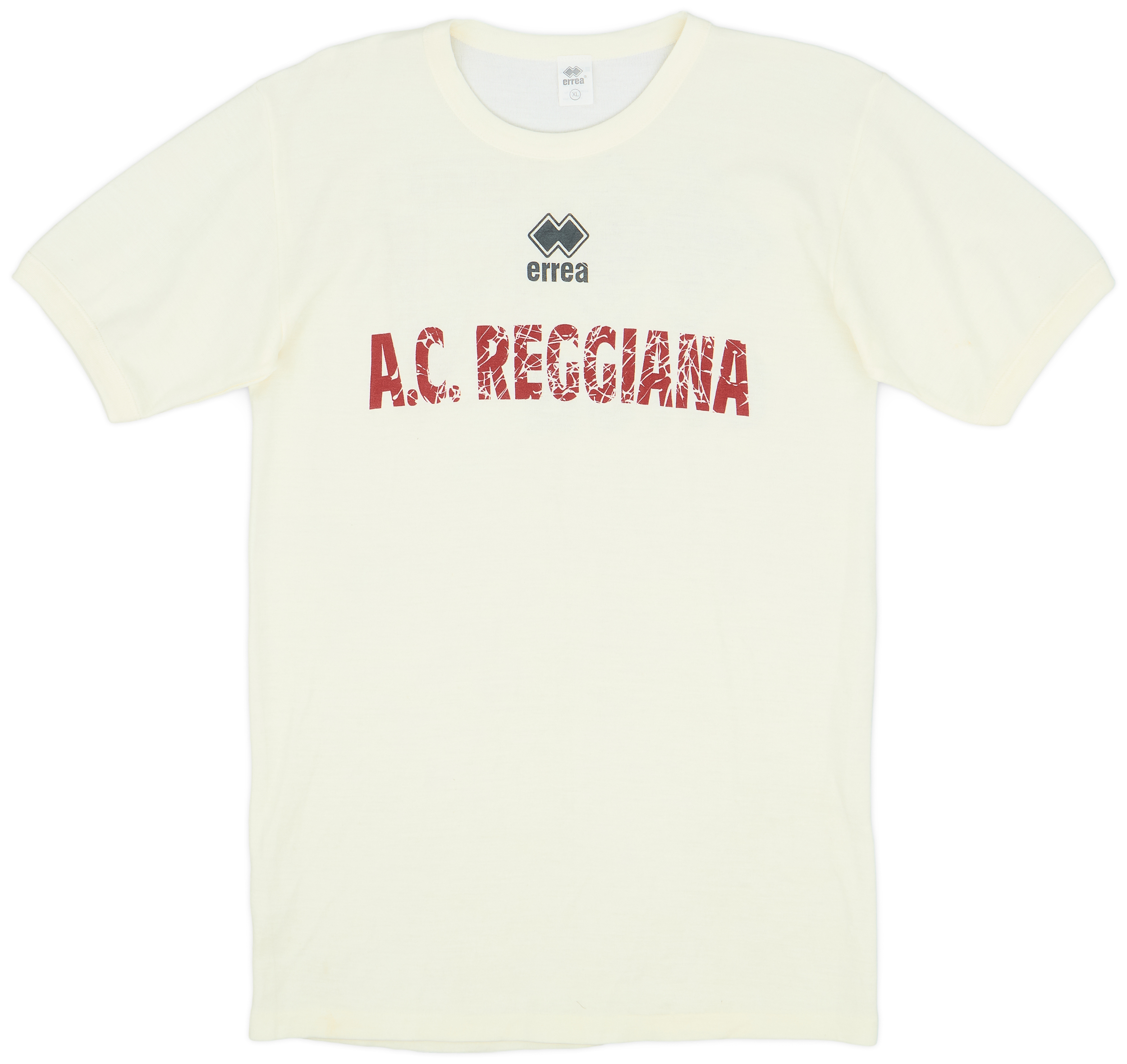Reggiana
Introduction Unione Sportiva Reggiana 1919, commonly referred to as Reggiana, is a storied football club based in Reggio Emilia, Italy. Founded in the early 20th century, Reggiana has become a symbol of local pride and passion for the sport. With a rich history intertwined with Italian football, the club has cultivated a unique identity characterized […]
1996-97 Reggiana Away L/S Shirt - 9/10 - (XS)
148.99£ - ca: €176
2002-03 Reggiana Match Issue GK Shirt #1
94.99£ - ca: €112
1993-94 Reggiana Asics Training L/S Shirt - 8/10 - (XL)
82.99£ - ca: €98
1998-99 Reggiana Errea Training Shirt - 10/10 - (XL)
47.99£ - ca: €57
2002-03 Reggiana GK S/S Shirt - 4/10 - (XL)
17.99£ - ca: €21
Introduction
Unione Sportiva Reggiana 1919, commonly referred to as Reggiana, is a storied football club based in Reggio Emilia, Italy. Founded in the early 20th century, Reggiana has become a symbol of local pride and passion for the sport. With a rich history intertwined with Italian football, the club has cultivated a unique identity characterized by resilience and an unwavering connection to its community. As one of the lesser-known yet historically significant teams in Italy, Reggiana has traversed various levels of the football pyramid, leaving an indelible mark along the way.
Club History
Reggiana was established in 1919, emerging from the consolidation of two local teams: AC Reggiana and AC Reggianese. The club initially played in regional leagues before moving up to national competitions after World War II. One of the pivotal moments in their history came in the late 1940s when they achieved promotion to Serie A for the first time. This marked the beginning of Reggiana’s involvement in Italy’s top-tier football, and although their stay was brief, it set the tone for future aspirations.
Throughout the 1980s and 1990s, Reggiana experienced fluctuating fortunes, moving between Serie A and Serie B. During this period, the club built a loyal fanbase, establishing itself as a staple of Italian football. In 1993, Reggiana secured a momentous place in Serie A by finishing third in Serie B, a significant achievement that has continued to resonate within the club’s narrative.
Achievements
Reggiana’s list of achievements, while modest compared to giants like Juventus and AC Milan, is a testament to the club’s tenacity. The peak of their successes came during the 1990s when they competed in Serie A. The crowning achievement occurred in the 1996-97 season when Reggiana finished 12th in the league, showcasing their ability to hold their own against the elite of Italian football.
Furthermore, the club has attained success in lower divisions, notably winning Serie B titles in 1975 and 2012, as well as an impressive Italian Serie C victory in 1985 and 1997. The legacy of these achievements is evident in the loyalty shown by fans, who take great pride in their club’s history and accomplishments.
Significant Players and Matches
Throughout its history, Reggiana has been a nurturing ground for several talented players who have left a lasting impact on the club. One of the standout figures is Gianluca Pessotto, who played for the team in the late 1980s before moving to Juventus, where he achieved significant success. Another notable player is Fabio Modesto, a versatile defender who played a crucial role during the club’s Serie A campaigns.
Among landmark matches, the one that stands out was the thrilling encounter between Reggiana and AC Milan in the 1996-97 season. Facing a team that boasted stars like Paolo Maldini and George Weah, Reggiana managed to secure a remarkable 2-2 draw, a testament to the club’s fighting spirit. Such performances have created cherished memories among the fanbase, reinforcing the club’s reputation as a formidable competitor.
Cultural Impact
Reggiana’s influence extends beyond the pitch. The club is deeply ingrained in the fabric of Reggio Emilia, a city known for its rich cultural heritage. Football matches serve as a gathering point for families and friends, fostering a sense of unity and pride among supporters. The ‘Granata’, named after their iconic maroon colors, often fill the stands of the Stadio Mapei-Città del Tricolore, creating an electrifying atmosphere.
The community’s passion for the club is seen during local events and match days, where food, music, and camaraderie combine to create a vibrant celebration of culture and sport. The ‘Curva Granata’, the fan section at home games, is known for its spirited chants and unwavering support, demonstrating the emotional connection between fans and the team.
Conclusion
In conclusion, Reggiana remains a compelling chapter in the story of Italian football. With its deep-rooted history, remarkable achievements, and significant cultural impact, the club is not just a football team; it is a beacon of pride for its community. While the future may hold uncertainties as Reggiana continues to navigate the ups and downs of Italian football, the passion of its fans and the legacy it has established ensure that the club’s story is one worth following. As Reggiana continues its journey, both on and off the pitch, it serves as a reminder of the enduring spirit of local football clubs across the globe.




